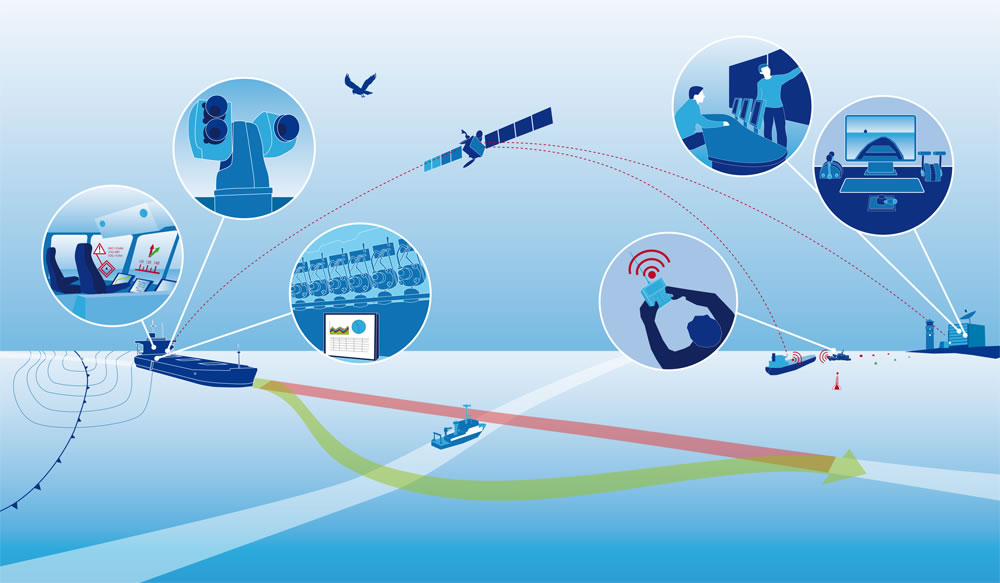Project Description
Background:
Maritime transport in the EU is facing challenges such as a significant increase in traffic, growing environmental demands and a future shortage of seafarers. The concept of the autonomous ship has the potential to overcome these challenges. It enables more efficient and competitive ship operations and an improvement in the environmental performance of ships. In addition, the shore-based approach to “seafaring” offers the opportunity to become more socially sustainable by reducing the time seafarers spend away from their families.
Project objectives:
The project MUNIN - Maritime Unmanned Navigation through Intelligence in Networks - is a collaborative research project co-funded by the European Commission under its Seventh Framework Program. MUNIN aims to develop and verify a concept for an autonomous ship, defined as a ship that is primarily guided by automated decision-making systems on board, but controlled by a remote operator in a shore-based control station.
In the future, such unmanned ships should be able to navigate independently on the high seas and be controlled by corresponding land-based operations centers. The overall MUNIN concept will consist of various linked systems, with the focus on expanding and linking existing technology.
The results of MUNIN shall contribute to the sustainability of European shipping, both from a financial, environmental and social point of view.
Tasks of Fraunhofer CML:
The CML led the project and enabled the prototypical development of various core systems in its simulator environment and provided the digital testbed for the evaluation of autonomous bridge technology.
Project consortium:
MUNIN was funded by the EU under the 7th Research Framework Program FP7 in the period from September 2012 to August 2015. The project consortium, led by Fraunhofer CML, consisted of eight European partners from research and industry from Germany (Wismar University of Applied Sciences, MarineSoft, Fraunhofer CML), Norway (MARINTEK, aptomar AS), Sweden (Chalmers University), Iceland (Marorka ehf) and Ireland (University College Cork).
 Fraunhofer Center for Maritime Logistics and Services
Fraunhofer Center for Maritime Logistics and Services


